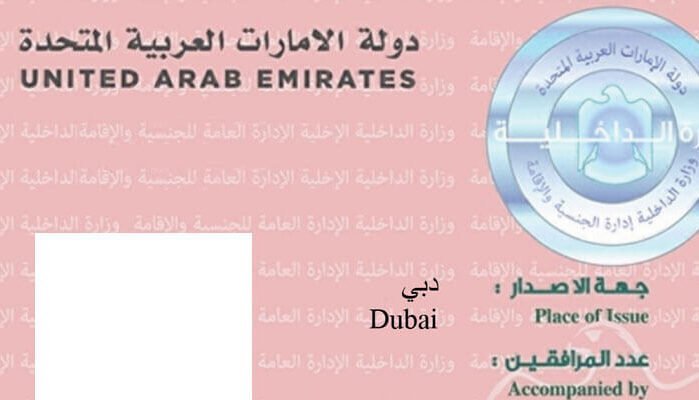What is the Difference Between Mainland vs Free Zone Company?
Mainland vs Free Zone, these are two distinct types of business jurisdictions in many countries, including the United Arab Emirates (UAE). Here are some key differences between Mainland and Free Zone businesses:
1. Ownership and Shareholding:
- Free Zone: In Free Zones, foreign investors can have 100% ownership of their businesses. This means you can own your business outright without the need for a local sponsor or partner.
- Mainland: Mainland businesses typically require a local Emirati sponsor or partner who holds at least 51% of the company’s shares. The foreign investor can own the remaining 49%.
2. Mainland vs Free Zone Business Activities:
- Free Zone: Freezones often have specific sectors or industries they cater to. Businesses in Freezones are limited to the activities permitted within that particular Freezone.
- Mainland: Mainland businesses have more flexibility in terms of the range of activities they can engage in. They can conduct a wide variety of business activities and expand across multiple sectors.
3. Location and Presence:
- Free Zone: Companies in Freezones must have a physical presence within the Freezone itself, and they are generally not allowed to operate outside the Freezone.
- Mainland: Mainland companies can set up their offices and operate anywhere within the UAE. They have the freedom to do business across the entire country.
4. Import and Export:
- Free Zone: Businesses in Freezones are typically exempt from customs duties and have simplified import and export procedures within the Free Zone. However, if they want to sell products within the UAE, they may have to work with local distributors.
- Mainland: Mainland businesses can import and export goods directly within the UAE without the need for a third party. They can also trade with businesses outside the country.
5. Licensing and Regulations:
- Free Zone: Freezones have their own regulatory authorities and simplified licensing processes. Company formation in Dubai and license issuance are generally faster and more streamlined in Freezones.
- Mainland: Mainland businesses are subject to the regulations of the respective emirate’s Department of Economic Development (DED). Licensing procedures can be more complex and time-consuming.
6. Taxation:
- Free Zone: Freezone companies often enjoy tax incentives, such as zero corporate and personal income taxes, for a specified period. However, this may vary depending on the free zone and the type of business.
- Mainland: Mainland businesses may be subject to corporate and personal income taxes, although there are often double taxation treaties in place to mitigate this.
It’s essential to carefully consider your business goals, activities, and the specific advantages and limitations of Mainland and Free Zone setups when choosing the most suitable jurisdiction for your business in the UAE. Additionally, regulations may change, so it’s a good idea to consult with legal and business experts for the most up-to-date information and advice.
Mainland vs Free Zone: Benefits
Both Mainland and Free Zone business setups offer unique benefits, and the choice between them depends on your specific business needs and goals. Here are some of the benefits of each:
Benefits of Freezone Business Setup:
- 100% Foreign Ownership: In Freezones, foreign investors can own 100% of their businesses without the need for a local sponsor or partner. This provides full control over the company.
- Tax Incentives: Many Freezones offer tax advantages, such as zero corporate and personal income taxes for a specified period. This can significantly reduce the tax burden on businesses.
- Quick Setup: Setting up a business in a free zone is often quicker and more streamlined than in the Mainland, with simplified licensing processes and minimal bureaucratic red tape.
- No Import/Export Duties: Businesses in Freezones typically enjoy exemptions from customs duties, making it easier and more cost-effective to import and export goods.
- Specialized Clusters: Freezones are often sector-specific, meaning businesses within a free zone are likely to be in the same industry, which can lead to synergies, networking opportunities, and access to specialized infrastructure and resources.
- Repatriation of Profits: In most Freezones, there are no restrictions on repatriating profits and capital, allowing you to transfer your earnings back to your home country without limitations.
- Privacy: Freezones may offer more privacy and confidentiality for business owners, as the ownership structure is not publicly disclosed.
Benefits of Mainland Business Setup:
- Flexibility of Business Activities: Mainland businesses have the flexibility to engage in a wide range of business activities and can expand across multiple sectors, providing a broader scope for business growth.
- Location Choice: Mainland businesses can set up offices and operate anywhere within the country, giving them more freedom in selecting their business location.
- No Limitations on Market Access: Mainland companies have access to the entire domestic market and can trade freely with businesses across the UAE. This is especially advantageous if your target market is the local population.
- No Industry Restrictions: Unlike Freezones, Mainland businesses do not have restrictions based on the type of industry they are in, making it ideal for a wide variety of businesses.
- Direct Import and Export: Mainland companies can import and export goods directly within the UAE without the need for third-party distributors, offering more control over their supply chain.
- Local Sponsorship: While it involves local sponsorship, this can also be seen as an advantage, as local sponsors can provide valuable insights, connections, and support for navigating local regulations.
- Global Recognition: Businesses set up in the Mainland may be seen as more established and trustworthy, which can be beneficial when dealing with international clients and partners.
Conclusion:
In summary, the choice between a Free Zone and a Mainland business setup depends on your specific business model, industry, and objectives. Free Zone businesses are generally preferred for people looking for tax benefits and a simplified setup process, while Mainland business setups are more suitable for those aiming for a broader market reach and flexibility in their business activities. It’s essential to weigh the advantages and limitations of each option carefully and seek professional advice when deciding which is right for your specific business venture.
We offer free consultation for any type of business setup in Dubai or anywhere in the UAE. Contact us today.
Use our Cost Calculator to get an estimate for your UAE company formation. It takes less than a minute.




